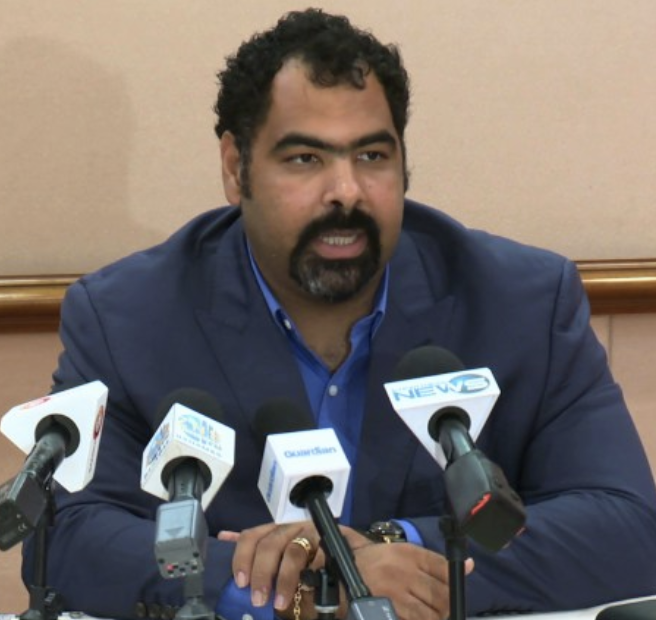NASSAU, BAHAMAS — The Bahamas must “take the fight” to the European Union (EU) and Organisation for Economic Cooperation and Development (OECD) a top banker has urged, as he dismissed political fingerprinting over this nation’s latest blacklisting.
“We have to stop crying woe is me and take the fight to the OECD and EU,” said Gowon Bowe, the Fidelity Bank (Bahamas) chief executive.
“The only way we do that is by upping our game is by efficiency and effectiveness in implementation, quality in data, and being progressive in terms of our next steps by looking ahead and putting in place a regime that will withstand their flurry of criticisms.”
Prime Minister Philip Davis told the United Nations 77th General Assembly last week that there was mounting evidence that targeting financial services’ sectors of “black-governed” states or former European colonies, is not motivated by compliance but “darker issues”.
Davis called the move “profoundly unfair”, adding there were “several startling commonalities” when reviewing the countries that are flagged as high risk and blacklisted.
Bowe said that while there is merit to the Prime Minister’s concerns, “we can’t focus on what’s not fair, we have to focus on actions that help us overcome the additional hurdles that have been put in front of us”.
The Opposition and others have accused the Davis administration of effectively “dropping the ball” over a blacklisting by the EU; however, Bowe noted that successive administrations have failed to address concerns outlined by the EU regarding “economic substance” and tax reporting.
“The Opposition is a part of government,” he said.
“When we are talking about external factors we have to be careful about finger-pointing between political parties when the government is continuous. What is the merit of criticizing one another when each administration has been guilty of the same shortcoming highlighted by these various organizations, the EU and the OECD?
“The reality is that it’s not progressive by either of the parties. We have to put the situation in context and appreciate that The Bahamas wants to do business with European clients. When we say that the goalposts keep moving we have chosen which markets we want to play in,” said Bowe.
He continued: There were commitments made by the government of The Bahamas, crossing over multiple administrations, and because of the failure to strengthen the public service which should have been carrying out all of the information requests, data analysis, and submissions to the OECD and EU, it failed to do so. What we have is the policy makers making commitments they have not held the public service accountable for implementing or not properly resourced to ensure that we met the commitments that we made.
“What we are being blacklisted for is failure to implement elements we committed to doing over multiple administrations. The policymakers have been writing cheques but have they been making sure that the public service and technical support they have been strengthened sufficiently to cash the cheque they have written,” said Bowe.
He added: “It’s the same criticisms being leveled. We have never had a shortage or inability to commit. We have had an inability to execute. If we are deciding we are going to play on another man’s court we have to be prepared to play by their rules even if they change continuously.
“The truth of the matter is we are an open economy. We rely on the clientele of the OECD and EU countries and we have to ask ourselves if we continue to tinker around the edges only will we not suffer the same fate every 24 months. We know the underlying philosophy is that there should be a tax system that attaches taxation to the earnings of individuals and companies. We have continued to suggest that we can escape this. Have we as a country been satisfied with our tax system as it currently exists, and the answer is no.”






